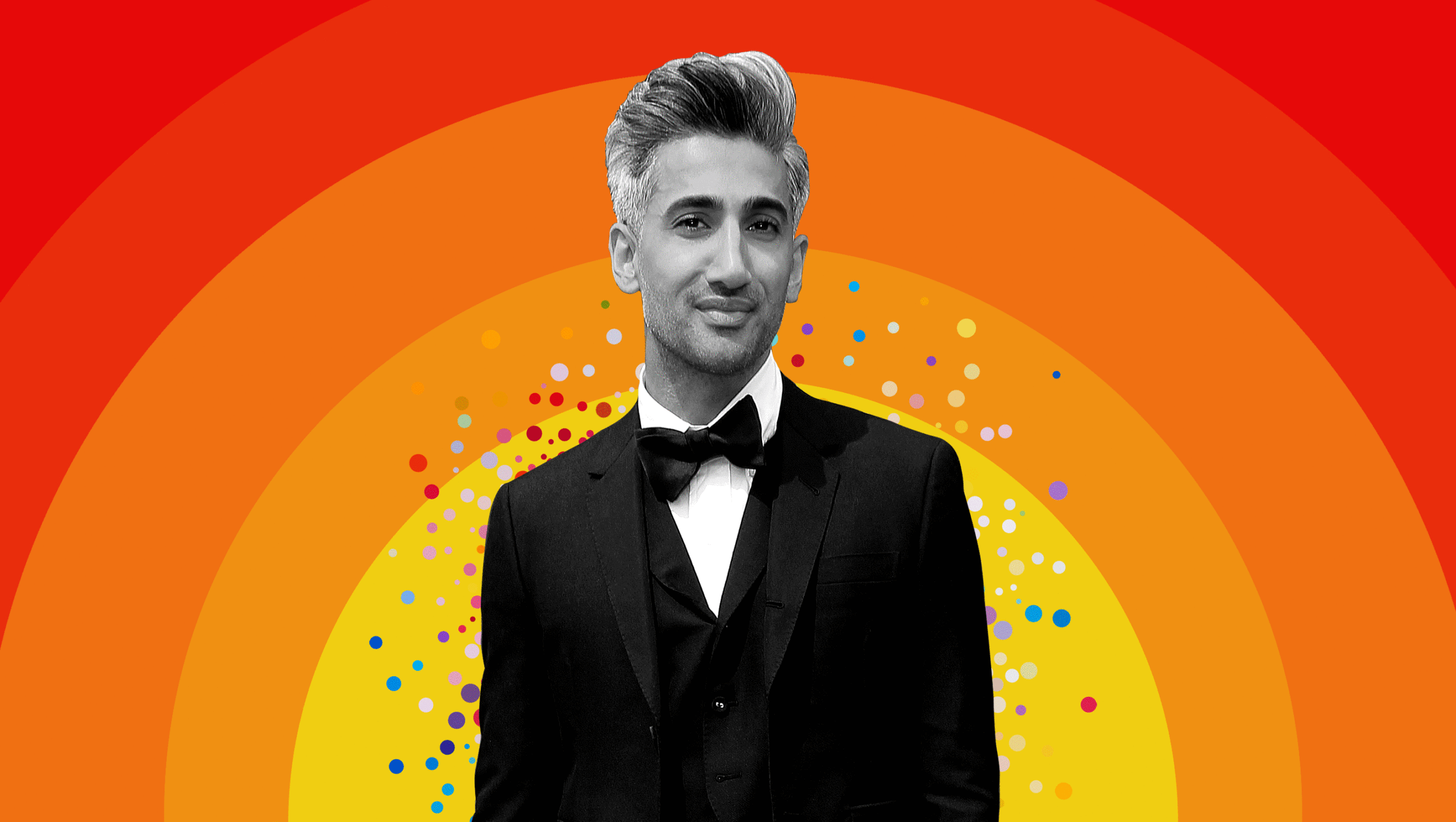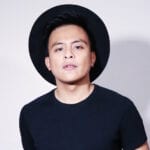Queer Eye’s Tan France spoke with The Guardian before the third season premiere of the Netflix’s hit show. In the interview, France opened up about growing up gay, Muslim and meeting his husband.
Here are 12 things we learned from his interview.
1. Tan France has a “good side.”

During his interview with Guardian reporter Colin Crummy, France initially sat to Crummy’s right but then quickly bounced back up and asked to swap chairs. The reason: he wanted Crummy to see his good side.
“My jaw is squarer this side. I didn’t actually think about it before the show. Then I realized, oh, I really don’t like that side,” France said.
2. He had no gay friends before Queer Eye
France, who used to work in the wholesale clothing business, transformed into a celebrity in less than 12 months. He told Crummy he never thought he’d be part of the reboot. “I wasn’t qualified. I’d never been on TV before,” France said.
He also revealed he had no gay friends prior to the show. Now, as perhaps one the world’s most famous, out gay Muslims, he has 2.1 million followers on Instagram and he’s writing a memoir.
“The show has given me more than I’ll ever know, and not just financially or in terms of fame,” he said. “It put me in a position to represent my community in a way that I had never seen. And, I’m not just talking about the gay community, I’m talking about the Asian community.”
3. He tells Queer Eye participants they can ask him anything
France says when he meets Queer Eye participants, he asks for a hug and makes a promise.
“I don’t say, ‘Tell me your deepest, darkest secret.’ I say, ‘You can ask me my deepest, darkest secret. Ask me anything.’” He said also pointing that straight men usually want to know about gay sex. “How it all works, something vulgar like that.”
4. As a child, he listened to Kylie Minogue and played with Barbie dolls
France grew up with two older brothers and a sister in Doncaster, England. Growing up, he went to the mosque every day. He said he didn’t socialize outside his community and played with Barbie dolls and listened to Kylie Minogue’s “I Should Be So Lucky” in his bedroom.
5. He encountered racism early in life
France said calling out the racists would achieve nothing.
“I knew that having an adverse reaction was not going to achieve anything,” he said. “I knew if they were willing to talk to me, I could say, ‘What is your problem with Pakis? Who do you think we are?’”
6. The word “gay” was never mentioned in his household
Growing up, his family never spoke about homosexuality. France’s father, who died when France was 13, once brought home Barbie dolls and a doll house.
France said it was probably due to his father’s competitiveness. His uncle, who lived next door, just bought something similar for his daughter. But even though his father had brought the toys home, France said he knew that he needed to police himself.
“I was frightfully aware that if everybody said I was obsessed with this, it might lead to negative consequences. My dad might have learned it ‘isn’t right’ for his Pakistani son,” he says. “So I didn’t play with the dollhouse when other people were around.”
7. He began the process of coming out at 16
He studied fashion at Doncaster College, it was during this time when met his ex-boyfriend. He first told friends, then siblings, then his mother that he was gay.
The rest of his family were shocked, but he accepted that they needed time to adjust. “They had planned a whole heterosexual life for me and it was just shocking to hear that plan was never going to come to fruition,” he said.
8. He couldn’t cry in front of the camera

France said he physically can’t cry in front of the camera.
“I don’t know what it is. I sit there thinking, c’mon. It’s the one thing I really dislike about myself,” he said.
He pointed an episode in Season 1 when the show followed AJ, a 32-year-old gay Black man, and his journey to self-acceptance. France said the episode was an exception. It moved him so much that he asked for time out.
“None of my tears made it into the cut,” he said. “But I was crying so hard at one point, I had to take a break. I could not do it anymore.”
9. He used to dress Mormon girls and had no ambitions to go into entertainment
In the US, he launched a niche business to dress Mormon women in young, fashionable clothing that met the religion’s guidelines on modesty. He said this means floaty dresses to the knee, loose-fitting tops and high-waisted bikinis.
France travelled back-and-forth to Salt Lake City in Utah where he worked with the Skalla family, fashion influencers who are dubbed as the Mormon Kardashians. He said at one point, the family were in talks about having their own reality show but that didn’t happen. However, executives who met France during these meetings forwarded his name to someone on Netflix who was casting for Queer Eye — and the rest is queer history.
10. He met his husband on a work trip

In January 2008, France met his husband, Rob France, on a work trip. Rob is a pediatric nurse and former Mormon whose family ran a cowboy ranch in Wyoming. He said there was an instant connection, especially in regards to their conservative upbringing.
They were in a long-distance relationship before they married in 2013.
“I still have the biggest crush on him,” France said. “Every time I see him, I get this feeling like I can’t believe he’s mine.”
11. His husband encouraged him to audition for Queer Eye
France said it was Rob who told him to fly to Los Angeles for a weekend and join the other finalists invited by Netflix.
“My husband said, ‘You’ve been moaning for years and years that you have no gay friends. There’s going to be a room of gay men and you’re the most sociable person I know: just go.’”
12. He acknowledged that he faces a very specific set of pressure
France said he represents many marginalized communities and there’s a pressure of how to act like a man.
“There is also the pressure of how you are as an Asian man, and how you are perceived and how you should behave. How you are representing yourself as an immigrant in the US — what you need to do to be the best immigrant you can be,” he said.
He also said sometimes he feels judged by the gay community for not being out and proud enough. “You’re not a good gay if you’re not representing at every moment,” he said. “But only you get to decide how to present yourself to the world. And I get to be the version of gay I want.”

Catch France and the rest of the Fab Five on the new season of Queer Eye on Netflix, March 15.


 Why you can trust Xtra
Why you can trust Xtra


